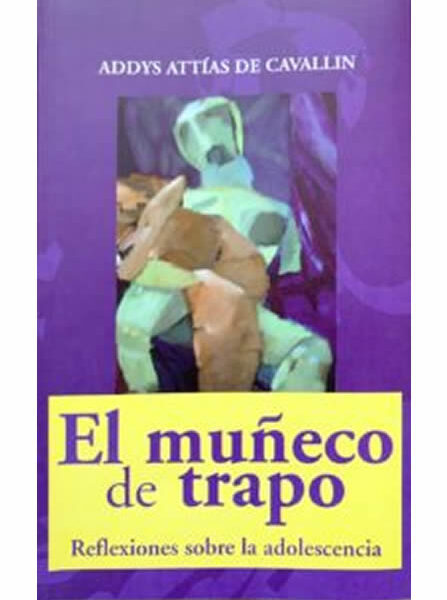A Nobel Prize winner on psychiatry,
Freud and the future of neuroscience.
Newsweek
March 27, 2006 issue – In 2000, Dr. Eric Kandel, a Columbia professor and Howard Hughes Medical Institute senior investigator, earned a Nobel Prize for his work on learning and memory. But Kandel’s early passion was psychoanalysis, and he is a leading proponent of merging the long-divided fields of neuroscience and psychology. His book on the topic, “In Search of Memory,” hits bookstores this month. Kandel, 76, talked with NEWSWEEK’s Claudia Kalb.
KALB: How does Freud hold up?
KANDEL:
I think he’s a giant. Tremendously thoughtful, insightful and imaginative. There are things that he said that don’t hold up. His view of female sexuality was wrong. But he gave us a nuanced and rich picture of the complexities of mental life. He’s one of the great thinkers of the 20th century.
What are his greatest contributions?
Much of what we do is unconscious. That is a revelation that largely comes from Freud. The fact that dreams have psychological meaning, that infants are active, thinking individuals who have sensual as well as painful experiences also comes from Freud. The fact that by listening carefully to a patient, you can get a lot of insight into what the unconscious is talking about. This is revolutionary stuff.
Is psychoanalysis still relevant?
The problem with psychoanalysis, and it’s a deep problem, is not with Freud. Subsequent generations have failed to make it a more rigorous, biologically based science. Psychoanalysis as a therapy has declined in popularity because it is time-consuming and expensive. Most importantly, people have lost confidence in whether or not it works. I think it’s going to go down the tubes if the psychoanalytic community doesn’t make a serious effort to verify its concepts and show which aspects of therapy work, under what conditions, for what patients and with which therapists. We need to look for the biological effectiveness of all kinds of psychotherapy, in the same way we do for drugs. I think that’s the leitmotif of the next 15 years. If we can do it, it will revolutionize the field. After all, Freud always said that one day in the future we will need to bring psychoanalysis and the biology of the mind together.
When did you first get interested in psychoanalysis?
When I was in my early 20s. It had tremendous appeal as an intellectual adventure. This was an understanding of the human mind, of aspirations, unconscious mental processing, desires, dreams. I went to medical school with no idea of doing anything else but psychoanalysis.
You told the great neurobiologist Harry Grundfest that you wanted to find the ego, id and superego during your six-month rotation in his lab. What were you thinking?
I was a schmegeggy.
To think that each one of these complex mental structures had a single locale and that I could find them in six months was absurd. I learned to be more realistic. Grundfest banged into my head that the brain needed to be analyzed one cell at a time.
You’ve come a long way. What’s your new book about?
My book has two purposes. The most important is an introduction for the general reader to the new science of the mind and to the explosion that has occurred in the neurobiology of mental processes in the last 50 years. The second theme is my own life and work—how I got interested in the problem of memory and how I benefited from and, to modest degrees, participated in this revolution.
How does the future look?
The future of neuroscience is brilliant. The danger is that we’re at the foot of a mountain range that people think we’ve already scaled. It’s a huge mountain. It’s going to take a century.
© 2006 Newsweek, Inc.
Newsweek
March 27, 2006 issue – In 2000, Dr. Eric Kandel, a Columbia professor and Howard Hughes Medical Institute senior investigator, earned a Nobel Prize for his work on learning and memory. But Kandel’s early passion was psychoanalysis, and he is a leading proponent of merging the long-divided fields of neuroscience and psychology. His book on the topic, “In Search of Memory,” hits bookstores this month. Kandel, 76, talked with NEWSWEEK’s Claudia Kalb.
KALB: How does Freud hold up?
KANDEL: I think he’s a giant. Tremendously thoughtful, insightful and imaginative. There are things that he said that don’t hold up. His view of female sexuality was wrong. But he gave us a nuanced and rich picture of the complexities of mental life. He’s one of the great thinkers of the 20th century.
What are his greatest contributions?
Much of what we do is unconscious. That is a revelation that largely comes from Freud. The fact that dreams have psychological meaning, that infants are active, thinking individuals who have sensual as well as painful experiences also comes from Freud. The fact that by listening carefully to a patient, you can get a lot of insight into what the unconscious is talking about. This is revolutionary stuff.
Is psychoanalysis still relevant?
The problem with psychoanalysis, and it’s a deep problem, is not with Freud. Subsequent generations have failed to make it a more rigorous, biologically based science. Psychoanalysis as a therapy has declined in popularity because it is time-consuming and expensive. Most importantly, people have lost confidence in whether or not it works. I think it’s going to go down the tubes if the psychoanalytic community doesn’t make a serious effort to verify its concepts and show which aspects of therapy work, under what conditions, for what patients and with which therapists. We need to look for the biological effectiveness of all kinds of psychotherapy, in the same way we do for drugs. I think that’s the leitmotif of the next 15 years. If we can do it, it will revolutionize the field. After all, Freud always said that one day in the future we will need to bring psychoanalysis and the biology of the mind together.
When did you first get interested in psychoanalysis?
When I was in my early 20s. It had tremendous appeal as an intellectual adventure. This was an understanding of the human mind, of aspirations, unconscious mental processing, desires, dreams. I went to medical school with no idea of doing anything else but psychoanalysis.
You told the great neurobiologist Harry Grundfest that you wanted to find the ego, id and superego during your six-month rotation in his lab. What were you thinking?
I was a schmegeggy. To think that each one of these complex mental structures had a single locale and that I could find them in six months was absurd. I learned to be more realistic. Grundfest banged into my head that the brain needed to be analyzed one cell at a time.
You’ve come a long way. What’s your new book about?
My book has two purposes.
The most important is an introduction for the general reader to the new science of the mind and to the explosion that has occurred in the neurobiology of mental processes in the last 50 years. The second theme is my own life and work—how I got interested in the problem of memory and how I benefited from and, to modest degrees, participated in this revolution.
How does the future look?
The future of neuroscience is brilliant. The danger is that we’re at the foot of a mountain range that people think we’ve already scaled. It’s a huge mountain. It’s going to take a century.
© 2006 Newsweek, Inc.
Jessica Wynne for Newsweek


